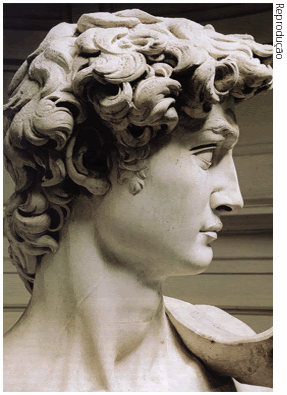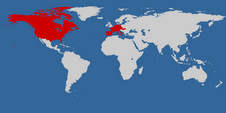 (June 9.th 1898 - July 19.th 1957)
(June 9.th 1898 - July 19.th 1957)
Kurt Erich Suckert was an Italian journalist, dramatist, short-story writer, novelist and diplomat.
His chosen surname, which he used since 1925, means "he of the bad place" and is a pun on the word "Bonaparte".
Born in Prato, Tuscany, to a Lombard mother and a German father, he was educated at Collegio Cicognini and at the La Sapienza University of Rome.
In 1918 he started his career as a journalist.
Malaparte fought in WWI, earning a captaincy in the 5.th Alpine Regiment and several decorations for valour and in 1922 took part in Benito Mussolini's March on Rome. In 1924, he founded the Roman periodical "La conquista dello stato" (The Conquest of the State). As a member of the Partito Nazionale Fascista, he founded several periodicals and contributed essays and articles to others, as well as writing numerous books, starting from the early 1920s, and directing two metropolitan newspapers. In 1926 he founded with Massimo Bontempelli the literary quarterly "900". Later he became a co-editor of "Fiera Letteraria", and an editor of "La Stampa" in Turin.
His confessional war novel, "La rivolta dei santi" (1921), criticized corrupt Rome as the real enemy. In "Tecnica del colpo di stato" (1931) Malaparte attacked both Adolf Hitler and Mussolini. This led to Malaparte being stripped of his National Fascist Party membership and sent to internal exile from 1933 to 1938 on the island of Lipari. He was freed on the personal intervention of Mussolini's son-in-law and heir apparent Conte Galeazzo Ciano. Mussolini's regime arrested Malaparte again and imprisoned him in Rome's infamous jail Regina Cœli.
His remarkable knowledge of Europe and its leaders is based upon his experience as a correspondent and in the Italian diplomatic service. In 1941 he was sent to cover the Eastern Front as a correspondent for "Corriere della Sera". The articles he sent back from the Ukrainian fronts, many of which were suppressed, were collected in 1943 and brought out under the title "Il Volga nasce in Europa" (The Volga Rises in Europe). This experience provided the basis for his two most famous books, "Kaputt" (1944) and "The Skin" (1949).
"Kaputt", his novelistic account of the war, surreptitiously written, presents the conflict from the point of view of those doomed to lose it. Malaparte's account is marked by lyrical observations, as when he encounters a detachment of Wehrmacht soldiers fleeing a Ukrainian battlefield:
"When Germans become afraid, when that mysterious German fear begins to creep into their bones, they always arouse a special horror and pity. Their appearance is miserable, their cruelty sad, their courage silent and hopeless."
According to the editorial note of "The Skin": "Malaparte extends the great fresco of European society he began in "Kaputt". There the scene was Eastern Europe, here it is Italy during the years from 1943 to 1945; instead of Germans, the invaders are the American armed forces. In all the literature that derives from the WWII, there is no other book that so brilliantly or so woundingly presents triumphant American innocence against the background of the European experience of destruction and moral collapse."
The book was condemned by the Roman Catholic Church, and placed on the "Index Librorum Prohibitorum".
From November 1943 to March 1946 he was attached to the American High Command in Italy as an Italian Liaison Officer. Articles by Malaparte have appeared in many literary periodicals of note in France, the United Kingdom, Italy and the United States.
After the war, Malaparte's political sympathies veered to the left, and he became member of the Italian Communist Party. In 1947 he settled in Paris and wrote dramas without much success. His play "Du Côté de chez Proust" was based on the life of Marcel Proust, and "Das Kapital" was a portrait of Karl Marx.
"Cristo Proibito" (Forbidden Christ) was Malaparte's moderately successful film – which he wrote, directed, and scored in 1950. It won the City of Berlin special prize at the Berlin Film Festival in 1951. In the story a war veteran returns to his village to revenge the death of his brother, shot by the Germans. It was released in the United States in 1953 as "Strange Deception" and voted among the five best foreign films by National Board Of Review.
He also produced the variety show "Sexophone" and planned to cross the United States on bicycle. Just before his death, Malaparte completed the treatment of another film, "Il Compagno P".
After the establishment of the People's Republic of China in 1949, he became interested in the Maoist version of Communism, but his journey to China was cut short by illness, and he was flown back to Rome. "Io in Russia e in Cina", his journal of the events, was published posthumously in 1958.
Malaparte's final book, "Maledetti toscani" (Those Cursed Tuscans), his attack on bourgeois culture, appeared in 1956. He died of cancer.
Main writings:
– Tecnica del colpo di Stato (1931)
– Il Volga nasce in Europa (1943)
– Kaputt (1944)
– La Pelle (1949)
– Du Côté de chez Proust (1951)
– Maledetti toscani (1956)
(Wikipedia: abridged and adapted)
A Obra de Curzio Malaparte em Português
Editora Livros do Brasil, colecção "Dois Mundos"
– Kaputt
– A Pele
– As Mulheres Também Perderam A Guerra
Colecção "Vida e Cultura"
– Eu na Rússia e na China
Colecção "Edições Especiais Ilustradas"
– O Sol É Cego
Publicações Europa-América, colecção "Livros de Bolso"
– Técnica do Golpe de Estado
RIC
quinta-feira, 18 de janeiro de 2007
Curzio Malaparte – the man, and the writer
Editado por RIC às 11:01
Separadores:
Literaturas
![]()
Subscrever:
Enviar feedback (Atom)




















20 comentários:
More works to look into I guess.
Thanks!?
Hello dear Joel! Well, I wouldn't say all of them or one after the other, but «The Skin» is a masterpiece indeed! I believe you might enjoy reading it!...
You're welcome!
Best wishes, dear friend!
Como referi no "L'avion rose" há dias (também tu o fizeste), acerca da casa de Malaparte (belìssima), há 2 livros de Malaparte que foram marcos importantes das minhas leituras do final de adolescente: "A pele" e "Kaputt".
Tenho pena de não ter lido mais nada dele, mas a tua ajuda, com a sua bibliografia pode vir a suprir a lacuna.
É um autor um pouco esquecido, o que é pena; se me lembrar que Morávia, Calvino e outros perduraram muito mais na lembrança das editoras...
Também refiro, como havia feito no post supra-citado, a quase certeza da transposição para a tela de "A pele", pela mão de Lilianna Cavanni.(só a inércia me impediu de confirmar tal no IMDB).
Um abraço.
Por acaso já no La"vieen"rose (eh eh eh, eu tb passo por lá), dera-me conta que nada conhecia do Malaparte e ficara com vontade de descobrir os livros que o Pinguim conservava na memória. Acho que é desta que vou lá: aguçaste-me o apetite! :)
Olá João! Tudo partiu da visão daquela casa fantástica (que eu ignorava) no «L'avion rose».
(A propósito, acho uma «trouvaille» bem divertida o trocadilho com «La vie en rose»...)
Depois, recordei algumas passagens de «A Pele» e, por fim, li algures que alguém «deveria» pegar no assunto. Fui ver o que podia fazer, e aqui está, para um público mais alargado e com sugestões em Português.
Quanto ao filme, não tenho ideia. Mas se existe, adoraria vê-lo. Deve ser espantoso!
Obrigado!
Um abraço amigo!
Olá Catatau! O «objectivo» é mesmo esse: acicatar vontades!...
Como os dois melhores romances são de uma colecção acessível, é bem provável - digo eu (às vezes esqueço-me de como Portugal funciona...) - que os encontres em qualquer biblioteca menos recente... Talvez sim, talvez não...
Tanto «Kaputt» como «A Pele» são grandes romances!
Obrigado!
Um abraço! :-)
Tenho uma vaga, muito vaga mesmo, de ter lido Kaputt. Aliás, penso que me posso certificar, quando visitar a minha mãe. É que, tanto tempo depois, ainda lá conservo muitos livros, sobretudo os da adolescência.
Há «saltos» e «falhas» que se preenchem automaticamente, Tongzhi. «Vaga» só pode ser mesmo a ideia...
De «Kaputt» gostei muito, mas «A Pele» fascinou-me muitíssimo.
Que reconfortante ter uma mãe para visitar...
Um abraço! :-)
Amigo Ric
Só para te confirmar que há mesmo a versão cinematográfica de "A pele", de 1981, realizado por Liliana Cavanni, e com Mastroianni no principal papel; Burt lancaster e C.Cardinalle também por lá estão.
Esta realizadora dirigiu muitos filmes sobre a 2ªG.G., sendo o mais conhecido "O porteiro da noite".
Muito obrigado, João! Quanto a «O Porteiro da Noite» não tenho quaisquer dúvidas. Vi-o há já muito tempo, mas lembro-me perfeitamente. Já quanto ao Mastroianni como protagonista de «A Pele», sinceramente, não me lembro. Gostaria muitíssimo de ver... Lembrei-me agora mesmo: que história é essa da «mula»? Fiquei curioso, mas entretanto esqueci-me de perguntar...
Muito obrigado pela atenção!
Um abraço! :-)
Confesso uma lastimável ignorância: nunca li nada deste senhor. Ou melhor: pode que sim; mas, então, o meu Superego tê-lo-á remetido para os confins inacessíveis dos meus ficheiros mentais.
Atendendo ao que por aqui se disse, vou procurar, na memória e na estante, a ver se descubro alguma coisa...
Uma ignorância (se for o caso...) nunca é lastimável, meu caro Maurice. Lastimável, isso sim, é ser-se ignorante e achar-se isso o máximo, tendência que tem vindo a proliferar entre nós (e talvez não apenas entre nós...).
Como decerto leste, «A Pele» e «Kaputt» merecem bem uma visita... Quem sabe se não estarão lá na prateleira à tua espera, hein? Às vezes acontece...
(Não creio que o Superego molestasse estas maravilhas... O meu não conseguiu...)
Um abraço! :-)
I do not believe that I have ever heard of Malaparte before now. Thank you for another interesting character to explore!
Quando acabar de ler os livros que me ofereceram no Natal, prometo que vou experimentar este senhor!
Se não gostar, levas uma descasca das grandes !!!!!!!!!!!
LOL
BOM FIM DE SEMANA
Hello dear Gray! You are most welcome! I'm sure you'll find «The Skin» rather interesting, since it has everything to do with the encounter of American troops with the southern Italian population during WWII... Fascinating!
Wish you the best! :-)
Olá Teddy Bear! Ouve lá, ó rapazinho, não achas um romance italiano intitulado «A Pele» suficientemente sugestivo para te fazer imaginar algumas coisas, não?...
Ui, já nem sei onde é que me hei-de meter de tanto medinho...
Bom fim-de-semana para ti também!
:-)
I've never heard of this guy before (bows head in shame) - but thank you for broadening my horizons, Ric.
Being from the US I can honestly say that I've never heard of Malaparte. That doesn't mean much, most of the world is shielded from us here; art, culture and all that is foreign is looked at as a threat to your sensibilities. We know the true story don't we? And this Malaparte's life is testement to a life well lived. Thank you for sharing this with us Ric.
Cheers,
kb
Hello Minge! Thank God there's always a first time for everything! Especially for good things! And there's absolutely no valid reason for any shame whatsoever!
You are most welcome!
Have a great weekend!
:-)
Oh Wayne!... Beautiful words indeed! Thank you so very much!
It's quite recomforting to me whenever a post gets one comment like yours. But then again I haven't got any reason to wonder: after all yours is an artist's soul... No more words needed.
Yes, I guess we do know the true story indeed... I cannot avoid feeling some sorrow right now...
You are most welcome indeed, dear Wayne!
Wish you a great weekend! :-)
Enviar um comentário